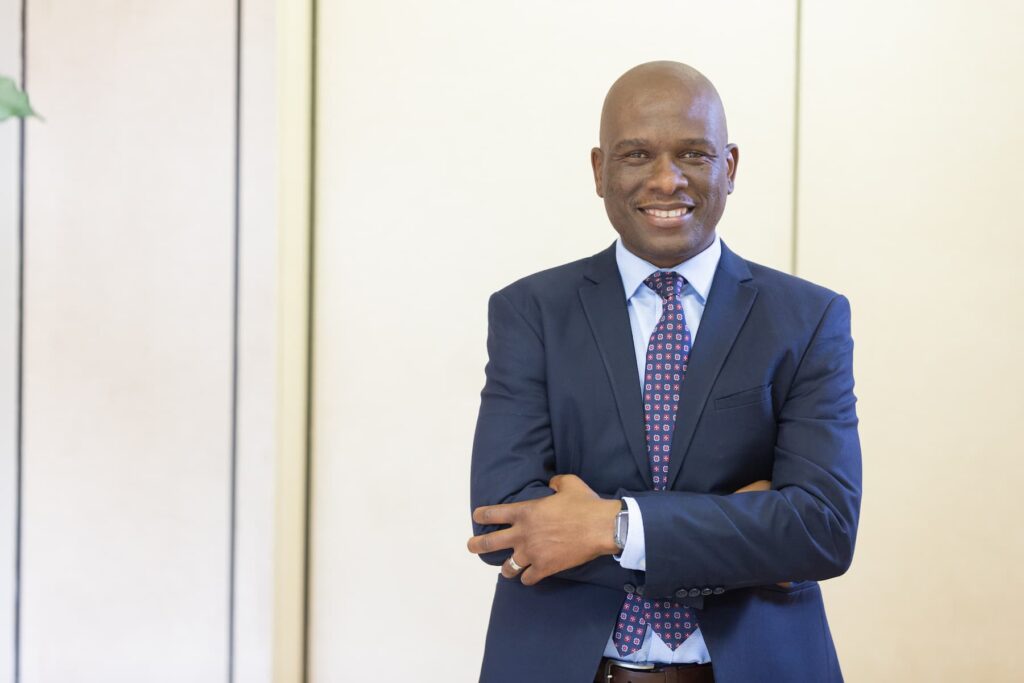
Dr. Dumisani Dlamini
Dumisani Dlamini is a seasoned executive and financial leader with more than two decades of experience in both the public and private sectors. He currently serves as the Group Chief Financial Officer and Executive Director at the Soul City Institute, a non-profit organization known for its impact in social justice and community development across South Africa. At Soul City Institute, he leads key business functions including finance, governance, procurement, HR, ICT, and risk management. His leadership is driven by innovation, strategic thinking, and a commitment to ethical governance. At EliteX, we are proud to feature Dumisani Dlamini on the cover of our edition: Prominent Finance Leaders in Africa, 2025.
Dr. Dlamini holds a Doctor of Business Administration from Tshwane University of Technology and a Master of Commerce degree from the University of KwaZulu-Natal. His academic foundation is further strengthened by qualifications in taxation, accounting obtained from Durban University of Technology, and international financial reporting attained from Association of Chartered Certified Accountants). He is a Chartered Global Management Accountant through the Chartered Institute of Management Accountants (CIMA), and a Chartered Director (SA) certified by the Institute of Directors in South Africa. These credentials reflect his high standards in leadership, financial expertise, and corporate governance.
Dumisani was born and raised in the township of Clermont, within the Durban metropolitan area, by his parents Thomas and Duduzile Dlamini. While his father has since passed away, his mother remains a strong presence in his life, continuing to support him on his journey. Growing up, he was unfamiliar with the world of business and finance-no one in his family had a background in it. It wasn’t until he met a teacher named Mr. Memela at Sithokozile Secondary School in KwaDabeka that he discovered his passion for accounting. Mr. Memela had a way of teaching that made numbers relatable. He would use everyday examples, like local supermarkets, to explain complex accounting principles. This practical and familiar approach sparked a love for the subject, which stayed with him all the way through to matric. With limited resources and no mentors to guide him, Dumisani taught himself both accounting and mathematics. His passion for numbers grew stronger over time. He believed-and still believes-that numbers have the power to shape and drive businesses, organizations, and entire communities.

“We must design financial solutions that meet local needs-from rural farmers to market traders-because real inclusion starts on the ground.”
Over the years, Dumisani has held several influential roles. He served as Chief Financial Officer for the South African National Parks (SANParks), where he also stepped in as Acting CEO. During his time at SANParks, he led successful revenue growth strategies, advanced the national tourism framework, and introduced together with his colleagues the innovative Wildlife Conservation Bond-an internationally recognized environmental finance initiative. Under his leadership, SANParks achieved record tourism income, improved poaching control, and made progress in building sustainable infrastructure.
Before that, he spent over three years at the National Arts Council of South Africa, a public entity facing financial management challenges and internal control issues. Within the first month of his appointment, Dumisani took time over a weekend to review the audit findings and designed a recovery plan by the next week. He worked with the existing finance team-without relying on outside consultants-and turned things around. The organization achieved its first clean audit in 18 years, and went on to receive clean audits every year during his tenure. He brought in automation, integrated systems, and improved operational processes, setting a new standard for financial governance. His work earned him national recognition, including the Public Sector CFO of the Year and Young CFO of the Year awards in 2016.
Dumisani’s professional journey also includes more than twelve years at the South African Revenue Service (SARS), where he advanced to senior management. He was part of the senior management team during a key modernization period at SARS, gaining deep experience in budgeting, financial controls, procurement, and risk management. He later joined the Soul City Institute as CFO, further cementing his reputation as a reliable and transformational finance executive.
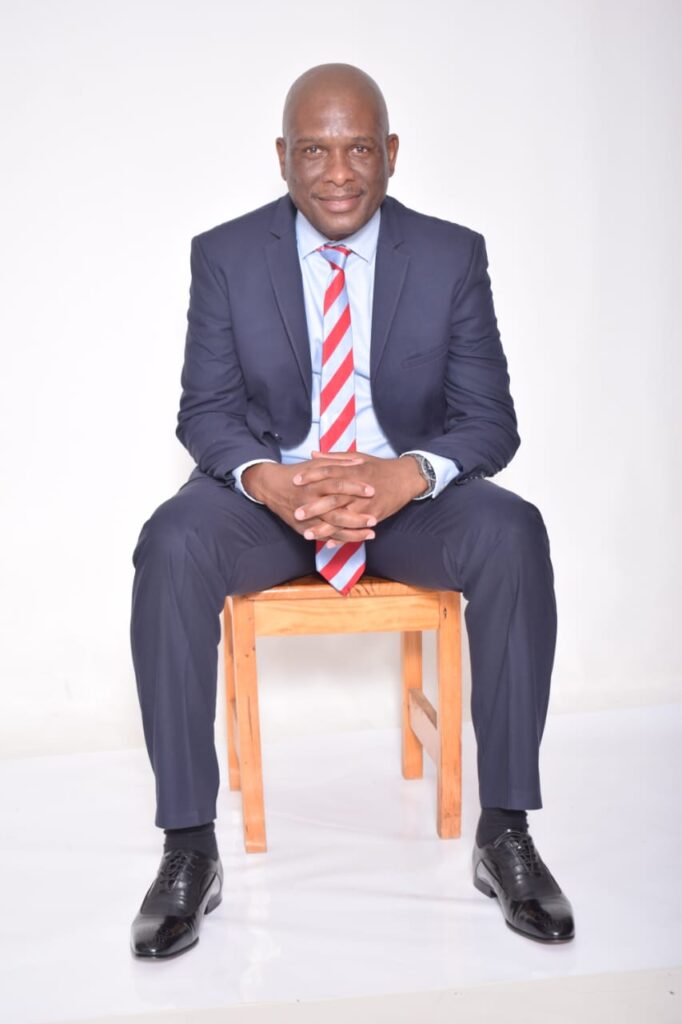
Today, in addition to his work at Soul City Institute, Dumisani also serves as an Investment Manager at the Soul City Broad-Based Empowerment Company (SCBBEC), where he helps manage and evaluate investments aligned with sustainable development and financial growth. He is widely involved in governance beyond his executive roles. Dumisani has served on numerous boards and chaired audit and risk committees (ARC) for organizations including Mintek, Iziko Museums, the KwaZulu-Natal Community Education Training College and various municipalities. Member of ARC at the Quality Council for Trades and Occupations, member of Finance Committee at W&RSETA. He continues to contribute to entities such as the Accounting Standards Board, Institute of Directors of South Africa, Unemployment Insurance Fund, Sedibeng TVET College, Independent Police Investigative Directorate, the South African Pharmacy Council, Mpumalanga Department of Economic Development and Tourism, the Mpumalanga Regional Training Trust, Limpopo Department of Basic Education and Acciona Energy South Africa, a company owned by Acciona Spain. His boardroom experience reflects a blend of strategic thinking and hands-on expertise in financial management and corporate governance expertise.
Dumisani is also a frequent speaker at both national and international conferences. His insights have been shared at events like the Finance Indaba Africa, CFO South Africa Talks, and the World Congress of Accountants. He has also been profiled in respected publications such as TrueLove, CFO SA Magazine, Public Sector Magazine, Bona Magazine and ITWeb. His ability to translate complex financial ideas into practical actions makes him a valuable voice in finance, leadership, and governance spaces. Reflecting on Africa’s financial landscape, Dumisani has witnessed a remarkable transformation over the past ten years. The rise of mobile banking and fintech has made financial services accessible to millions of people across the continent. Innovations like M-Pesa in Kenya have shown the world how mobile technology can revolutionize banking. At the same time, governments and NGOs have worked together to promote financial inclusion, especially in rural and underserved areas. Dumisani has seen the growing interest in blockchain, digital currencies, and sustainable finance. Countries are beginning to explore central bank digital currencies (CBDCs) and implement more inclusive regulatory frameworks that support fintech innovation while ensuring consumer protection. Cross-border payments and trade have also improved, with initiatives like the African Continental Free Trade Area (AfCFTA) leading the way.
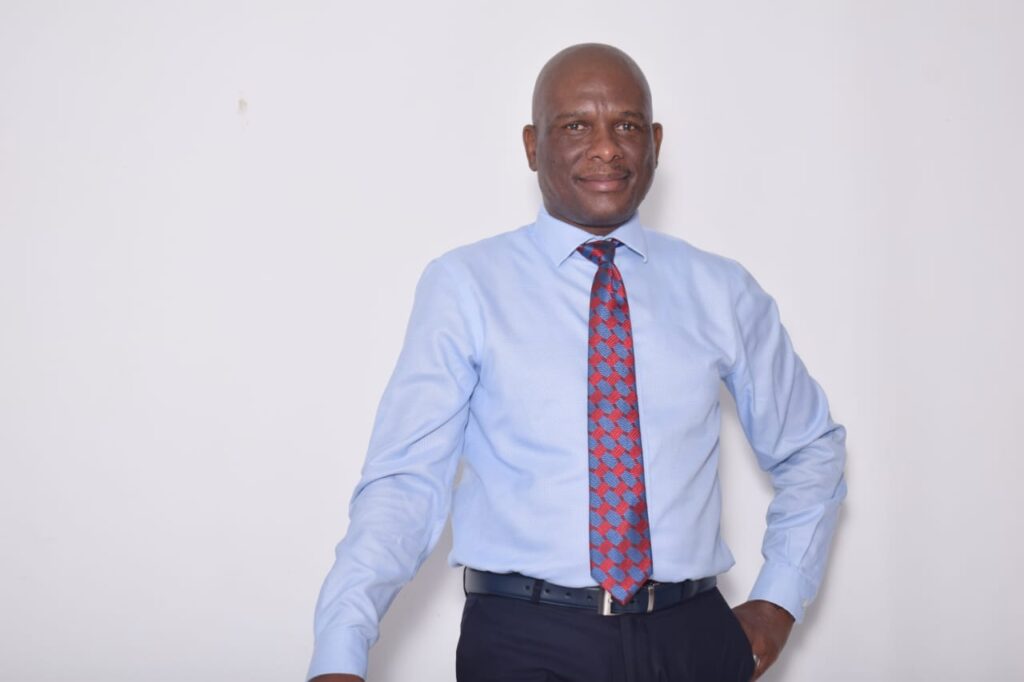
“Financial leadership means aligning capital with purpose and people with opportunity.”
Looking ahead, Dumisani expects fintech to continue expanding. He sees opportunities in peer-to-peer lending, robo-advisory services, insurtech, and embedded finance. As internet access improves, digital payments will become even more widespread. He believes that financial leaders must strike a balance between innovation and regulation to ensure sustainable growth. There is also a need for strong digital infrastructure, especially in rural areas, and for investments that align with climate resilience and sustainable development.
Throughout his career, Dumisani has stayed committed to making a difference-no matter how big or small the task. This philosophy has shaped the way he leads teams and builds systems. He focuses on solutions that are efficient, practical, and people-centered. Africa faces unique economic challenges, including currency fluctuations, inflation, and slow infrastructure development. Dumisani has developed a number of strategies to address these challenges. He uses flexible pricing models to respond to inflation and applies technology to improve operations and reduce costs. He is a strong believer in developing local talent and has initiated training programs to help employees grow and align with the demands of the market. He also builds strong relationships with local partners to navigate regulations and cultural dynamics more effectively. His experience with public-private partnerships has opened doors for solving infrastructure and financial challenges, especially during his time at SANParks. He also prioritizes sustainability and has helped create supply chains that are both resilient and environmentally friendly. Data-driven decision-making plays a central role in his approach. He monitors economic indicators-like interest rates, inflation, and currency trends-to guide his financial strategies. He keeps business models flexible, allowing organizations to adapt quickly to changing conditions. Training programs focused on financial literacy have also been important, not just for employees but for stakeholders and partners as well.
When it comes to investment in Africa, Dumisani sees enormous potential across multiple sectors. Technology and fintech continue to grow, offering new solutions for digital payments, banking, and lending. Agriculture is another major area, with agri-tech and food processing providing strong investment returns. Renewable energy is in high demand, and investments in solar and off-grid systems can make a big difference. He also points to healthcare, where the need for better services, telemedicine, and health infrastructure is growing. Infrastructure development in transport, housing, and utilities remains a priority, supported by public-private partnerships. E-commerce is expanding rapidly, especially after the COVID-19 pandemic, and there is untapped potential in delivery and logistics. Tourism, hospitality, and eco-travel also offer exciting opportunities, especially with Africa’s rich natural and cultural attractions. Education and EdTech are rising too, with young populations driving the demand for new learning platforms and vocational training.
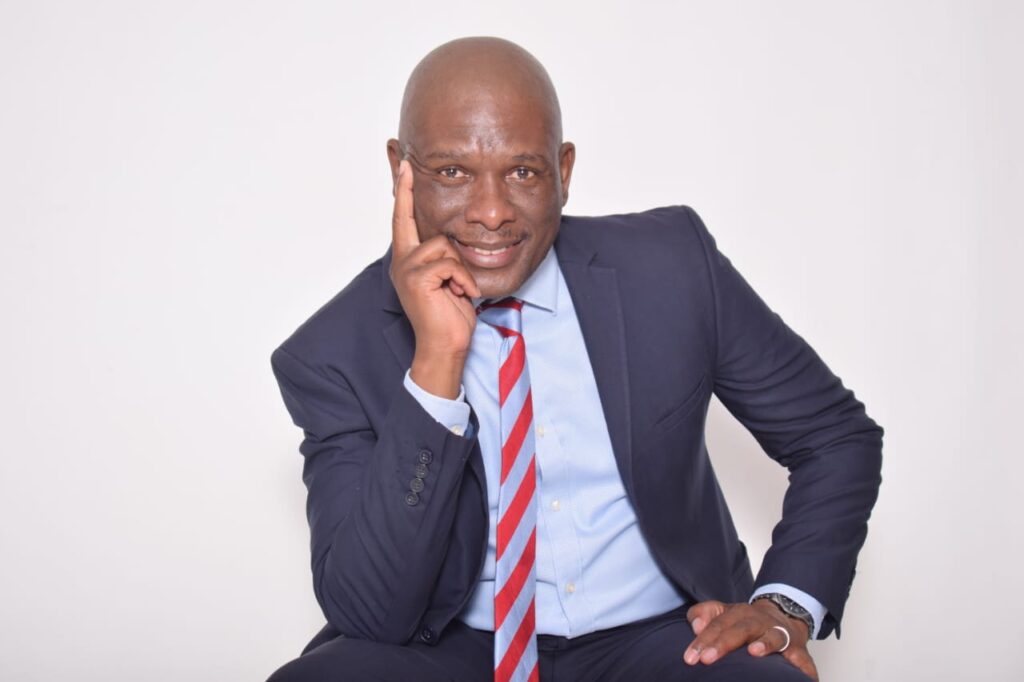
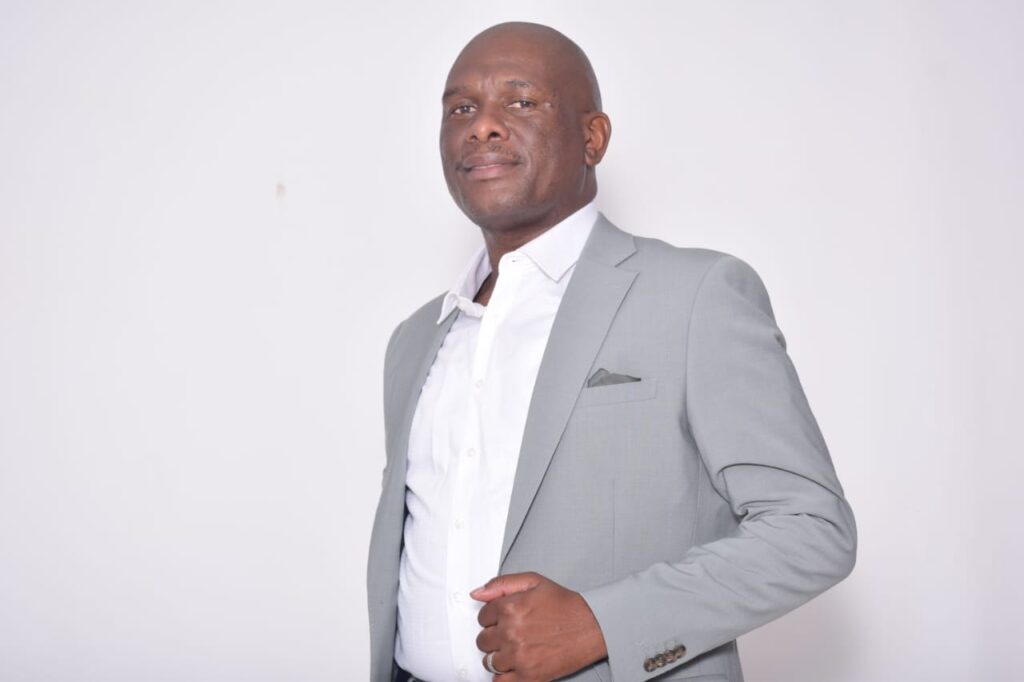
Dumisani is especially passionate about financial inclusion and sees it as a powerful tool for transforming Africa’s economy. When people have access to banking, credit, and financial services, they are better able to save, invest, and grow businesses. This strengthens families, creates jobs, and fuels local economies. He believes financial leaders must play an active role in improving access for underserved communities. This includes creating financial products for small businesses, rural populations, and women. Inclusive finance helps reduce poverty, promotes economic stability, and makes countries more attractive to investors. With the rapid growth of fintech, Dumisani encourages traditional banks to evolve. He advises them to invest in digital platforms, embrace agile practices, and collaborate with fintech startups. Banks can improve customer service by using data analytics to understand user needs and design better experiences. He also highlights the importance of cybersecurity, as more financial activities move online.
“Trust is the foundation of any financial system-and it begins with transparency and integrity.”
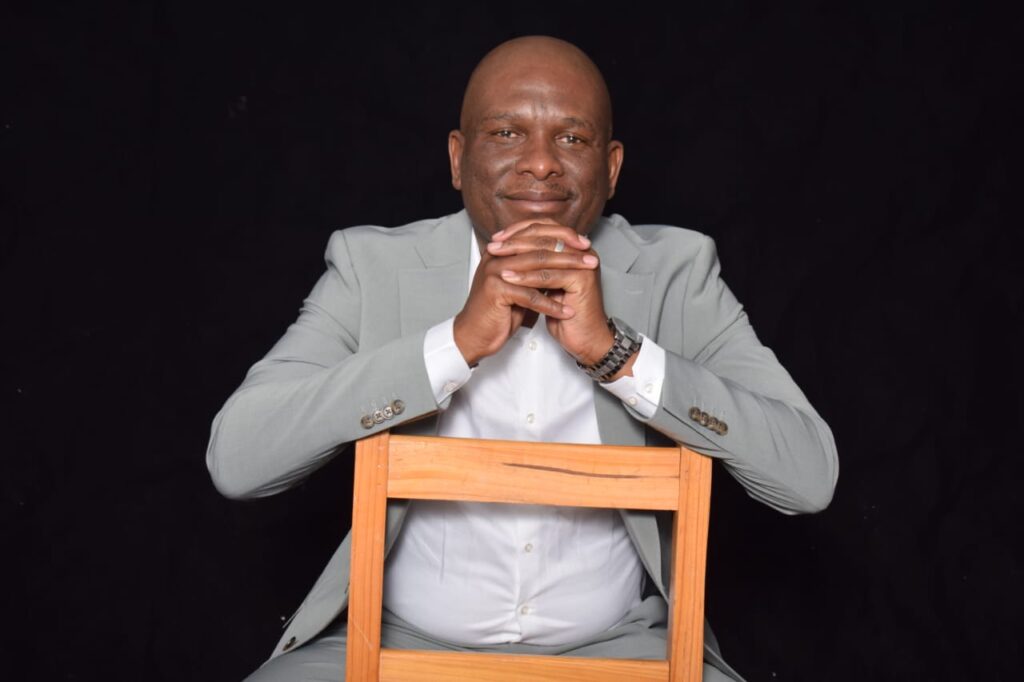
Banks should explore new services like robo-advisory, wealth management, and digital insurance. At the same time, they must keep up with regulations and ensure consumer protection. Training and workforce development are essential, too. Dumisani believes in equipping teams with the digital, analytical, and interpersonal skills needed to thrive in a changing financial landscape.
What sets Dumisani apart is his ability to lead with both technical expertise and human understanding. Whether working with government, private entities, or community-based organizations, he brings a deep respect for people, processes, and progress. As a family man he is married to Zama, his wife and are blessed with two daughters Zoe and Nkanyezi. He is involved in many community initiatives and also serve in the leadership of Power of God Assemblies.
He is known for building strong teams, developing leaders, and creating financial systems that deliver lasting results. His career is marked by integrity, performance, and a passion for positive change. Sustainable finance has become a key focus in Africa’s development journey, and Dr. Dumisani Dlamini considers it not only necessary but urgent. He sees sustainable finance as a tool that can help address Africa’s most pressing challenges-from climate change to poverty and inequality. For a continent already experiencing the harsh impacts of extreme weather events, droughts, and floods, redirecting financial flows into sustainable projects is both a practical and strategic solution. Whether it’s funding renewable energy initiatives or building resilient infrastructure, sustainable finance helps create long-term value while also addressing immediate environmental threats.
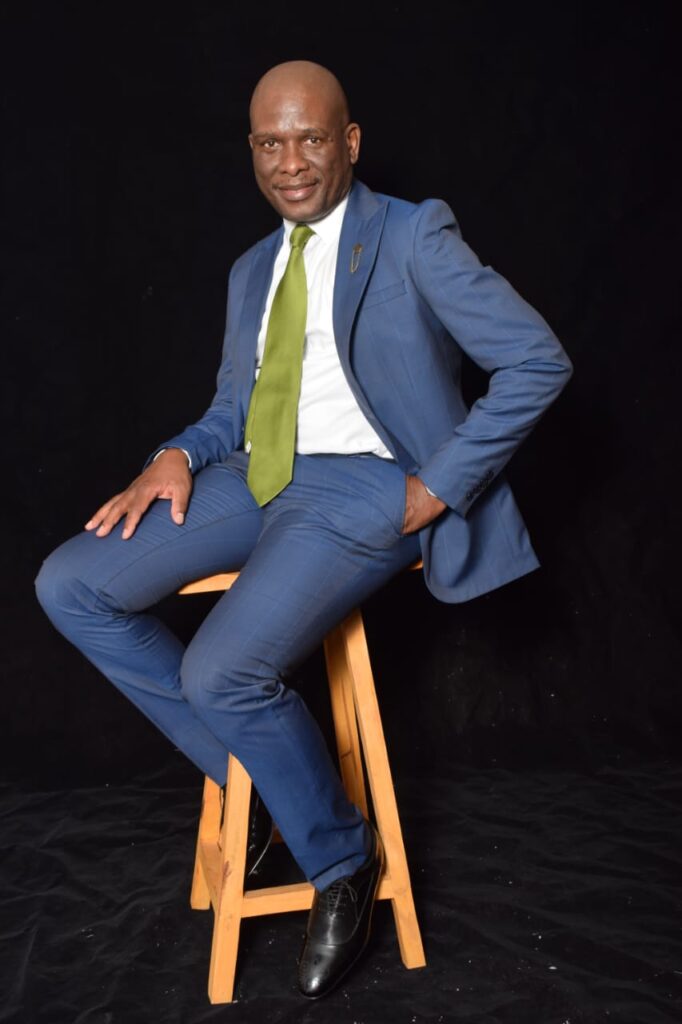
Dr. Dlamini believes that sustainable finance has the potential to fuel economic development that is both inclusive and lasting. When capital is allocated to sectors like clean energy, sustainable agriculture, or eco-friendly transportation, it generates jobs, enhances productivity, and contributes to a more resilient economy. These investments also encourage the adoption of innovative practices and resource efficiency, which can improve Africa’s competitiveness on a global scale.
Moreover, countries that prioritize sustainability tend to attract more long-term, stable investment-a trend that positions the continent for meaningful growth. He also points out that financial stability and sustainability are closely linked. In Africa, economies are often vulnerable to external shocks such as commodity price fluctuations. Sustainable finance promotes a diversified and adaptive economic base, reducing the risks tied to traditional sectors. It supports investment in infrastructure and industries that are less dependent on global volatility, ultimately contributing to a stronger financial foundation for future generations.
What makes sustainable finance particularly powerful, in Dr. Dlamini’s view, is its emphasis on social equity. He highlights how Environmental, Social, and Governance (ESG) investing opens the door to empowering historically marginalized communities. From microfinance programs that support small entrepreneurs to large-scale investments in healthcare and education, the principles of ESG investing are deeply aligned with Africa’s development priorities. He sees ESG not just as a financial trend but as a mindset that can shape a more just and inclusive future.
“Sustainable finance must be rooted in both ethical leadership and economic opportunity.”

Dr. Dlamini emphasizes the importance of building capacity at the local level. For ESG investing to truly take root in Africa, there needs to be greater awareness and understanding among businesses and financial institutions. He advocates for training programs, knowledge-sharing platforms, and mentorship that can guide companies in adopting ESG standards. With better tools and understanding, local enterprises can position themselves to attract ESG-focused investors and contribute to the continent’s sustainability goals. Leadership plays a central role in shaping the future of finance in Africa, and Dr. Dlamini approaches leadership with a strong sense of purpose. He believes that integrity is the foundation of effective leadership. In an industry where trust is paramount, he prioritizes ethical conduct, transparency, and accountability. His decisions are always guided by what is fair, honest, and in the best interest of the broader community.
A forward-looking mindset is equally essential. For Dr. Dlamini, vision and strategic thinking drive meaningful progress. He focuses on long-term outcomes rather than short-term gains, ensuring that every initiative he supports is aligned with a broader goal. His ability to anticipate industry trends, regulatory changes, and emerging risks allows him to lead organizations through complex and shifting landscapes. Another core value in his leadership style is a customer-centric approach. Understanding and responding to the needs of clients and stakeholders has always been at the heart of his decision-making. He encourages organizations to listen actively and engage with the people they serve, building relationships that are based on mutual respect and shared success.
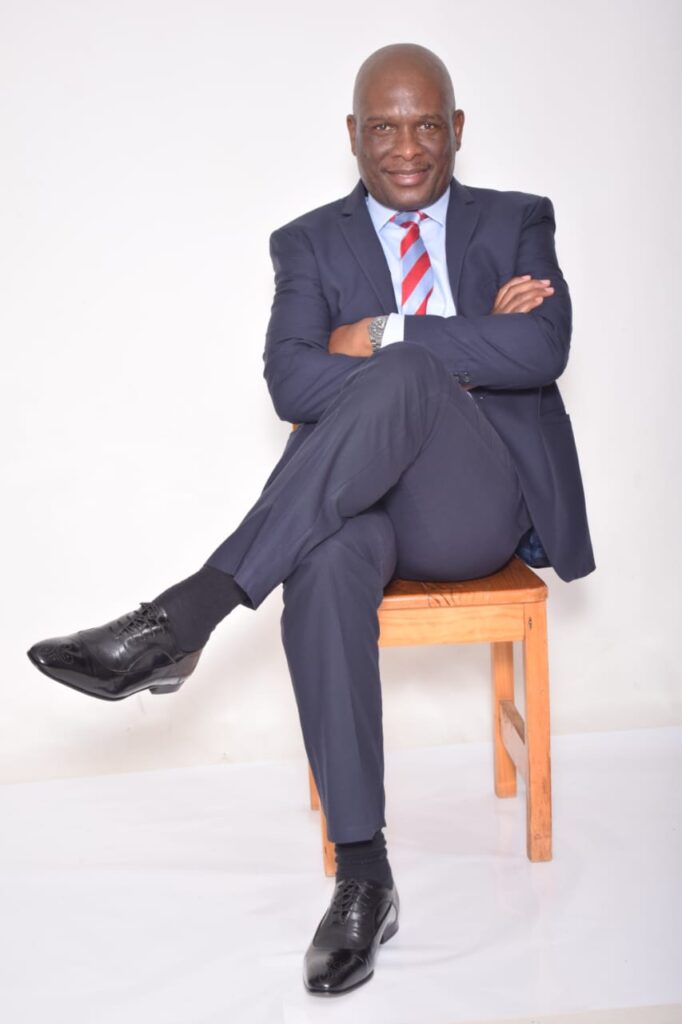
Dr. Dlamini also places a high value on collaboration and inclusivity. In his experience, diverse perspectives lead to better decisions and stronger outcomes. He promotes teamwork and openness, creating environments where individuals feel valued and heard. This inclusive culture not only fosters innovation but also ensures that solutions are comprehensive and considerate of varied experiences. Adaptability is a non-negotiable principle in today’s financial world.
Dr. Dlamini encourages leaders to be agile and embrace innovation. He sees change not as a threat but as an opportunity to evolve and improve. By staying open to new technologies and methods, he helps organizations remain competitive and relevant. Data-driven decision-making is another key part of his leadership approach. He relies on analytics and evidence to support strategic choices, reducing guesswork and enhancing effectiveness. For him, data is not just about numbers-it’s a way to understand patterns, anticipate challenges, and unlock opportunities.
Sustainability and social responsibility are deeply embedded in his thinking. He believes that financial success should not come at the expense of people or the planet. Every decision, from investment strategies to internal operations, should reflect a commitment to long-term impact and societal benefit. Continuous learning is also a major priority. Dr. Dlamini models a growth mindset and encourages his teams to pursue professional development. Whether it’s staying up-to-date with industry trends or acquiring new skills, he believes that learning drives performance and keeps organizations ahead of the curve. He pays close attention to risk management and resilience. In a volatile environment, identifying and addressing risks proactively is essential. His approach involves creating strong governance frameworks and fostering a culture of accountability, ensuring that risks are mitigated and operations remain stable. Lastly, he emphasizes the power of communication. Clear, open, and transparent communication builds trust both internally and externally. It helps align teams, clarify expectations, and maintain credibility, especially during times of change.
As a mentor and advocate for young professionals, Dr. Dlamini is deeply invested in preparing the next generation of leaders in Africa’s finance industry. He believes that success in this space demands more than just technical knowledge-it requires a multifaceted skill set that combines financial expertise, adaptability, and innovative thinking. He encourages young professionals to develop strong financial acumen. A solid understanding of markets, investment tools, regulations, and financial analysis is crucial. He supports academic programs and professional qualifications that build this foundation, such as degrees in finance or certifications like CIMA and CA. Analytical competence is also a must. In Dr. Dlamini’s view, the ability to interpret data and make informed decisions sets professionals apart. He champions the use of analytics tools and training in statistics, which empower professionals to turn data into actionable insights. Technological literacy is another area he stresses. As fintech reshapes the industry, understanding digital platforms, blockchain, and data science has become essential. He advocates for courses and certifications in relevant tech areas and encourages professionals to stay up-to-date with emerging innovations.
“In times of crisis, clarity and scenario-based planning are the strongest currencies a leader can hold.”
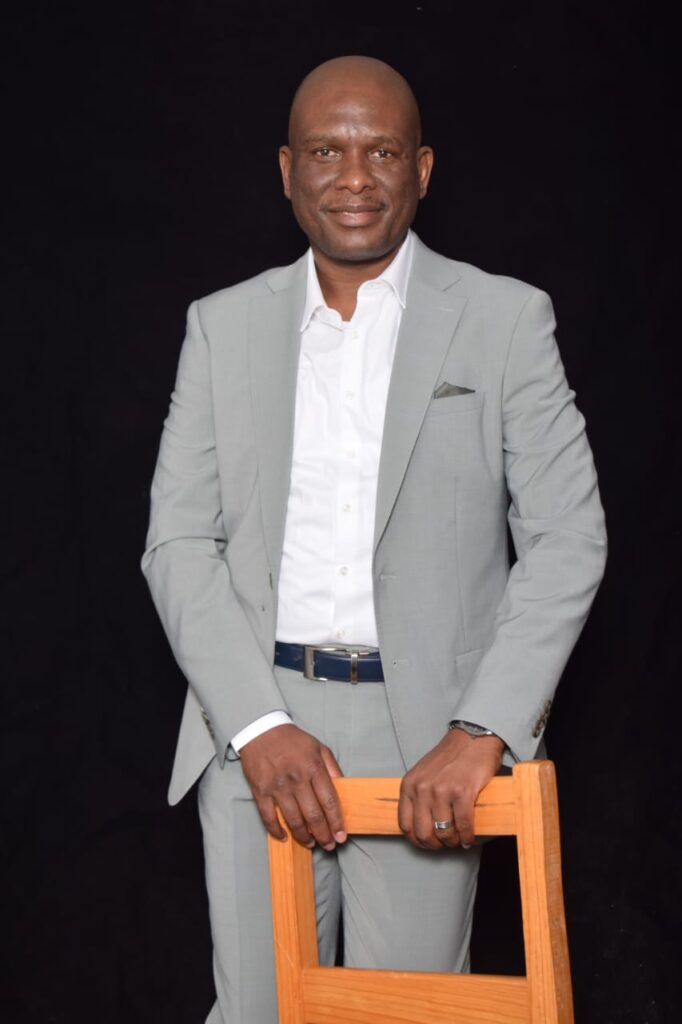
In addition to technical skills, Dr. Dlamini believes young professionals must cultivate resilience and flexibility. The finance industry is constantly evolving, and the ability to adapt to changes in policy, technology, or the global economy is vital. He promotes mentorship, leadership development programs, and exposure to real-world challenges as ways to build these qualities.
Creativity and innovation are also encouraged. Dr. Dlamini supports platforms like hackathons and startup incubators that allow young professionals to share and develop their ideas. He sees these initiatives as essential in fostering a culture of problem-solving and entrepreneurship. To promote diversity, he backs initiatives that offer equal opportunities for individuals from underrepresented communities. He believes that inclusion strengthens the industry and reflects the values of a just and progressive society. Whether through targeted recruitment or mentorship programs, he works to ensure that talent from all backgrounds can thrive. Supporting entrepreneurial ventures is another key focus. Many young Africans are building their own solutions to local challenges, and Dr. Dlamini sees immense value in empowering these entrepreneurs. He encourages financial institutions and investors to create pathways for young founders through funding, guidance, and networks. His work in regulatory affairs has also shaped his perspective on the evolution of financial governance in Africa. While acknowledging the progress made, Dr. Dlamini recognizes that much work remains in aligning African financial regulations with global standards. He notes that while countries like South Africa and Kenya have developed robust regulatory systems, inconsistencies remain across the continent. He stresses the importance of regulatory harmonization. By aligning frameworks with international bodies such as the Basel Committee, IOSCO, and FATF, African nations can improve investor confidence and financial stability. However, Dr. Dlamini cautions that this alignment must be tailored to the unique contexts and needs of each country.
Promoting financial inclusion remains a challenge. He believes regulations should actively support access to finance for marginalized groups while protecting consumers from exploitation. The success of mobile money in parts of Africa is encouraging, but stronger consumer protection and financial literacy are needed to fully realize its potential. Dr. Dlamini calls for increased investment in the capacity of regulatory authorities. He sees a need for better training, more advanced technologies, and stronger institutional frameworks to ensure effective enforcement and adaptability. Well-equipped regulators are essential for maintaining integrity and supporting innovation. He also champions the use of regulatory sandboxes, which allow fintech companies to test new products in a controlled environment. These sandboxes help regulators understand new business models while safeguarding consumers and minimizing systemic risk.

Anti-money laundering (AML) and counter-terrorism financing (CTF) measures are critical, and Dr. Dlamini believes they require a collaborative approach. He urges regulators to work with international partners and invest in technology to improve tracking, reporting, and enforcement. With digital finance on the rise, Dr. Dlamini highlights the importance of data protection. Strong legislation is necessary to ensure the privacy and security of users, which in turn builds trust in digital platforms and services. He also believes that regulatory frameworks must increasingly reflect the priorities of sustainable finance.
By embedding ESG principles into financial regulations, African countries can not only protect the environment and communities but also position themselves as leaders in global sustainability efforts. In the context of the African Continental Free Trade Area (AfCFTA), Dr. Dlamini sees financial institutions playing a central role in facilitating seamless trade. By building cross-border payment systems and trade finance solutions, these institutions can help businesses scale and access new markets. He supports innovations that reduce transaction costs and improve efficiency, including partnerships with fintech firms to develop real-time, secure payment systems. Multi-currency accounts and platforms for digital transactions are key enablers for cross-border commerce.
Trade finance instruments like letters of credit and invoice financing are crucial, particularly for small and medium-sized enterprises (SMEs) that often lack access to traditional forms of credit. Dr. Dlamini believes financial institutions must tailor products to meet the needs of these businesses and support their integration into continental supply chains. Investment in digital trade infrastructure is another priority. He advocates for platforms that link buyers and sellers, automate logistics, and digitize trade documentation. Technologies such as blockchain can enhance transparency and trust, while reducing fraud and administrative burden.
Dr. Dlamini emphasizes the value of regulatory alignment across African markets. Harmonizing financial and trade-related rules simplifies operations for businesses and fosters a more predictable, stable environment for investment. He supports training programs focused on compliance, financial literacy, and risk management, which can help businesses navigate the complexities of intra-African trade. These initiatives build confidence and capacity among entrepreneurs and exporters. Partnerships with regional bodies, trade associations, and the African Union are essential for understanding the specific needs of businesses and tailoring financial products accordingly. He sees these collaborations as a pathway to building stronger, more connected trade ecosystems.
Dr. Dlamini believes that modernizing trade documentation through digital platforms is one of the most practical ways to improve efficiency. Electronic customs systems and digital signatures can significantly reduce delays and costs, boosting competitiveness and encouraging participation in continental trade. Global investors are increasingly recognizing the potential of Africa’s financial markets. They see a continent full of opportunities but also one that presents certain challenges. Dr. Dumisani Dlamini believes that Africa is gaining more attention because of its youthful population, rapid urbanization, and rising consumer demand. These factors create a dynamic market environment, especially in sectors such as fintech, agriculture, renewable energy, and infrastructure. Investors are particularly drawn to the innovation and entrepreneurial spirit emerging across the continent.
“Digital financial inclusion is not a convenience. It’s a lifeline for the unbanked and underserved.”

Dr. Dlamini acknowledges that while the investment prospects are promising, investors still approach African markets with caution. Political instability, inconsistent regulations, and gaps in infrastructure often raise concerns. Additional challenges such as currency volatility, corruption, and weak legal protections can make investments riskier. However, he also sees these challenges as areas for transformation that can unlock immense value once addressed.
One area that excites global investors is Africa’s rapid adoption of financial technology. The rise of mobile banking, digital wallets, and micro-lending platforms has positioned the continent as a leader in financial innovation. Dr. Dlamini has been a strong advocate for leveraging these innovations to expand access to financial services. He believes that by addressing the financial needs of underserved populations, fintech can play a vital role in boosting economic participation and social inclusion. He also points to the growing interest in sustainable investment. As ESG considerations gain traction worldwide, Africa’s capabilities in renewable energy, sustainable farming, and social impact initiatives are increasingly being acknowledged. According to Dr. Dlamini, this is an opportunity for African countries to position themselves as key players in the global shift toward responsible investing.
To further boost investor confidence, Dr. Dlamini recommends several strategic actions. One of them is promoting public-private partnerships (PPPs). By encouraging collaboration between governments and private enterprises, these partnerships can help deliver projects more efficiently and build trust among investors. He also stresses the need for transparency in governance, public finance, and corporate practices. Strengthening anti-corruption measures and aligning with international standards can significantly improve Africa’s investment reputation. Investment incentives also have a role to play. Carefully designed fiscal measures such as tax holidays or investment guarantees can attract foreign capital without undermining public revenues. But more than policies, Dr. Dlamini emphasizes the importance of communication-educating global investors about Africa’s markets through roadshows, seminars, and real-life success stories.

Throughout his career, Dr. Dlamini has not only observed these trends but has also led organizations through complex financial situations. One defining moment was his leadership during the COVID-19 pandemic while serving at SANParks. In 2020, as South Africa went into lockdown and global tourism came to a halt, SANParks faced a staggering potential revenue loss of about R2 billion. Guest cancellations surged, and refund requests strained the organization’s cash flow. In a sector heavily reliant on visitor income, this crisis could have been devastating.
Dr. Dlamini played a central role in helping SANParks navigate the storm. He presented several scenario-based financial plans to the board, each crafted to address immediate cash shortfalls while preserving the organization’s long-term stability. Working closely with National Treasury, he helped secure financial support and provided critical inputs for discussions with the IMF. He led cost-saving measures and guided the redirection of resources toward revenue-generating activities. One of the standout strategies was the concept of “investing for growth,” which focused on identifying areas with the highest return on investment. Under his leadership, SANParks not only survived but emerged as a model of financial resilience among South Africa’s state-owned entities.
Further, Dr. Dlamini could drive one major transformation in Africa’s financial sector, it would be the creation of a strong and inclusive digital financial ecosystem. His vision is to use technology to provide financial access to all, especially the unbanked and underserved populations. He believes that empowering disadvantaged communities-particularly women and rural residents-with access to affordable financial services can significantly improve their ability to save, invest, and build businesses. This, in turn, contributes to poverty reduction and economic equality. A robust digital financial ecosystem would also support entrepreneurship by expanding access to credit and enabling easier transactions. For SMEs, which are the backbone of many African economies, this could mean better survival rates, more jobs, and greater contribution to GDP. Dr. Dlamini sees the potential of fintech not just as a convenience but as a transformative force for inclusive development. He also highlights the importance of consumer education. People need to understand and trust digital financial services to adopt them widely. This calls for nationwide financial literacy initiatives that explain how digital tools work and how to use them responsibly. Inclusivity is another key principle in his approach. Financial products should be designed with an understanding of local needs and barriers, ensuring that everyone-from market traders to small-scale farmers-can participate in the financial system.
Dr. Dlamini’s approach is not limited to strategy. It is also rooted in technical expertise and practical experience. His ability to solve problems and create sustainable financial solutions has defined his career. He has consistently demonstrated the capacity to help organizations face uncertainty with clarity and purpose. His skillset is multifaceted. It includes a strong foundation in financial principles-budgeting, accounting, and investment analysis-as well as the analytical ability to process large volumes of data and extract meaningful insights. Risk management is one of his strongest areas, enabling him to make well-informed decisions even under high-pressure conditions. Dr. Dlamini also keeps pace with technological trends. His familiarity with tools such as financial modeling software, enterprise resource planning (ERP) systems, and emerging technologies like blockchain and artificial intelligence has helped modernize operations wherever he has worked. By integrating data analytics and automation into financial processes, he has increased both efficiency and accuracy. His regulatory knowledge has been instrumental in navigating complex compliance environments. From anti-money laundering protocols to international financial standards, Dr. Dlamini ensures that his work aligns with both local and global expectations.

“Africa’s youthful population, innovation, and entrepreneurial spirit are not just trends-they are catalysts for economic growth.”
Beyond technical knowledge, his leadership style emphasizes clear communication. Whether presenting to a board of directors or engaging with community stakeholders, he has a unique ability to translate complex financial concepts into understandable terms. This clarity builds trust and ensures alignment across teams. Strategic thinking is another pillar of his success. Dr. Dlamini always aligns financial strategies with broader organizational goals, ensuring that resources are deployed for maximum impact. He views challenges as opportunities to create value, and his problem-solving mindset has consistently delivered results.
Relationships, in his view, are also a form of capital. By maintaining strong networks with colleagues, government officials, clients, and industry partners, he opens doors to collaboration and innovation. His customer-centric approach has allowed him to tailor financial products that genuinely meet client needs.
Importantly, Dr. Dlamini is a lifelong learner. He stays ahead of industry shifts, regulatory updates, and technological changes. This commitment to continuous development has helped him adapt quickly and respond effectively in fast-changing environments. His approach to innovation is also worth noting. In one situation, he found himself involved in a public-private partnership project where the board favored a leasing model. Dr. Dlamini believed this would lead to revenue losses and developed a financial model comparing two alternatives. His model showed that appointing a private partner to manage the facility, instead of leasing it outright, could generate billions of rands instead of millions. The model he presented included incentives that aligned the private partner’s interests with long-term profitability and efficiency. This kind of creative thinking, backed by data, helped shift the organization’s strategy and maximize returns.
Reflecting on his career, Dr. Dlamini often shares that the key lessons are rooted in resilience, purpose, and service. He sees financial leadership not only as a technical function but as a vehicle for transformation. His role, as he defines it, is to shape strategies that serve communities, support economic growth, and promote ethical standards. He views his leadership as more than guiding numbers-it is about motivating people toward a shared purpose. He has led teams through crises, reorganizations, and growth phases with a calm, clear focus. He has also worked to bring more people into the financial fold, pushing for inclusion and equal opportunity. Dr. Dlamini’s journey includes countless hours in boardrooms and meetings, but also in mentorship and advocacy. He encourages the next generation of finance professionals to build their careers on curiosity, integrity, and a sense of social responsibility.
He is especially proud of having contributed to financial education and inclusion. By supporting efforts to bring financial services to remote and underserved areas, he has helped pave the way for broader economic participation. Technology has also played a central role in his work. Whether automating financial systems or analyzing large datasets for decision-making, he has shown how digital tools can elevate performance and extend impact. Through his career, Dr. Dlamini has consistently promoted ethical effective leadership. For him, integrity is the foundation of trust-without it, financial systems cannot function effectively. He holds himself to the highest standards and expects the same from the organizations he leads.

“I believe finance is not just a technical function-it’s a vehicle for transformation.”
In sharing his journey, Dr. Dlamini hopes to inspire both professionals in the financial sector and the general public. He wants people to see that financial leadership is about more than balance sheets-it’s about building systems that are inclusive, innovative, and capable of supporting sustainable development. His story serves as a powerful reminder that finance, when guided by vision and values, can be a force for good in society.